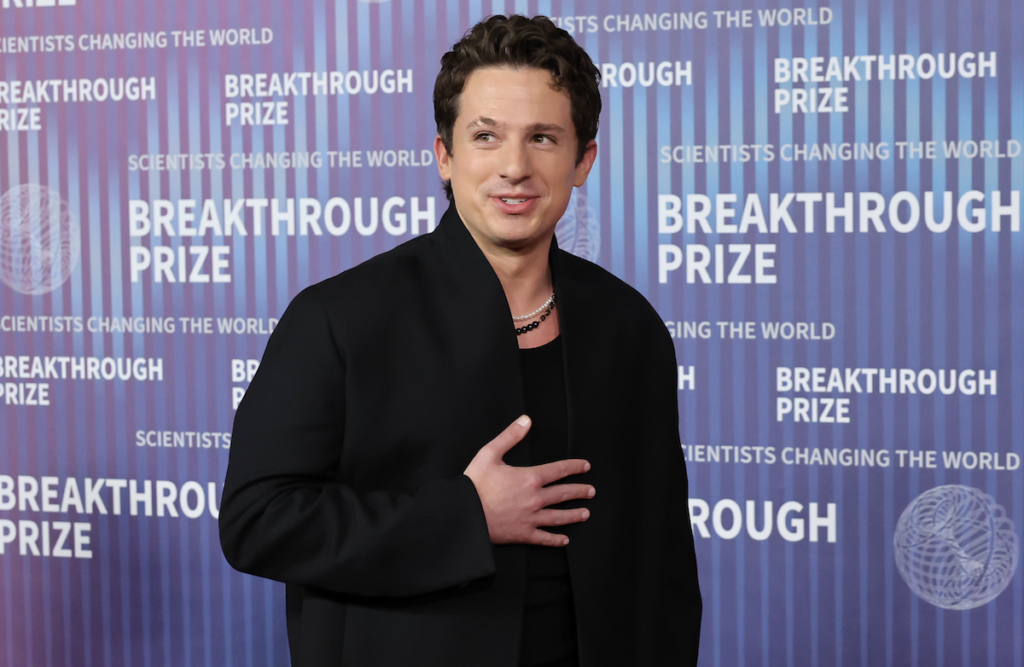
Audience
- Sentiment: Critical
- Political Group: Liberal
- Age Group: Teenagers
- Gender: Both genders, with a tilt towards more socially aware individuals
Overview
- Charlie Puth criticized Kanye West for promoting a T-shirt featuring a swastika, highlighting the dangerous influence of celebrity actions.
- The article discusses the responsibility that comes with celebrity influence and the potential harm of promoting hateful symbols.
- Organizations like the Anti-Defamation League condemned West’s actions, emphasizing the importance of historical understanding and accountability.
Title: The Power of Influence: Charlie Puth, Kanye West, and the Controversy That Ignited a Debate
In today’s social media world, a single post can create a firestorm of discussion and debate. That’s exactly what happened when Charlie Puth decided to call out Kanye West regarding a T-shirt that featured a swastika—a symbol that represents hatred and oppression. It’s astonishing how quickly situations can unfold in today’s digital age, where people have the loudspeakers of their thoughts at their fingertips. This article explores the impact of celebrities, the responsibility that comes with influence, and what it means for society when harmful messages are spread.
The Incident
Let’s rewind a little. Picture this: it’s the Super Bowl, one of the biggest events in American sports, known for awe-inspiring performances and million-dollar ad spots. In the midst of all the excitement, there’s a local advertisement that causes a lot of people to do a double-take. Kanye West, the music industry giant known for his hits and equally controversial antics, promoted a T-shirt featuring a swastika on his brand’s website.
For many, the swastika is not just an ancient symbol; it’s a painful reminder of one of the darkest chapters in human history—Nazi Germany and the holocaust, where millions lost their lives because of hate. When West chose to feature this design, the response from various communities was immediate and, understandably, loud.
Charlie Puth, a pop star known for his catchy songs and amazing vocal talent, didn’t hold back in voicing his opinions. In an Instagram Story, he criticized West’s choice and called his message “incredibly dangerous.” That’s a strong statement coming from someone who has made a name for himself in the music industry. Puth highlighted the reality of West’s influence. With millions of followers, every word, action, and even clothing choice of celebrities can resonate in unexpected ways.
The Ripple Effect of Celebrity Influence
Why does a singer like Charlie Puth speaking out matter? It’s simple: influence. Celebrities like Puth and West have significant power because of their fame. Whether they want to admit it or not, when they speak or act, people listen. They have the ability to set trends, influence public opinion, and challenge societal norms.
However, with that power comes responsibility. Influence isn’t just about selling out concerts or trending on TikTok; it involves making choices that either uplift or harm communities. Puth recognized this duty in his message. He pointed out that someone like West, who has a platform and a following, should be more aware of the potentially harmful consequences of their actions.
What many people may overlook is how influential these celebrities are in shaping societal views. Think about your own life: have you ever made a choice or changed your mind because a favorite artist or actor said something that resonated with you? If so, you’re not alone.
The Response from Organizations
Alongside Puth’s personal critique, organizations like the Anti-Defamation League (ADL) stepped in to echo his sentiments. The ADL is dedicated to combating hate and fostering understanding, so naturally, they condemned West’s actions. They asserted that using Nazi symbols contributes to a culture of anti-Semitism and fosters ignorance about what has happened in the past.
The focus of the criticism was not just aimed at West personally; it was also about the broader implications of his actions. Every time a high-profile individual promotes hate or divisive symbols, it sends a message. For those who are younger, like many 9th graders, it can be confusing to understand what’s right and wrong, especially when celebrities—who are often seen as role models—choose to flaunt harmful ideologies.
The Challenge of Understanding History
Let’s talk about the importance of history in these discussions. Understanding why symbols like the swastika are harmful requires education. Many students today learn about the Holocaust in school, but knowledge alone doesn’t change hearts and minds. It’s essential to grasp the weight these symbols carry and the pain they represent. This is particularly relevant to discussions happening in our world today, where issues of race, culture, and identity often lead to divides.
When celebrities choose to ignore this weight, it diminishes the power of historical lessons. It brings us to the question: what are we learning? Are we learning from history, or are we allowing ignorance to shape our perspectives?
The Bigger Picture: A Call for Accountability
West’s recent appearance at the 2025 Grammy Awards added fuel to the fire, reminding everyone that controversial behavior seems to be his thing. He seems to thrive on the chaos and the attention that comes with being provocative. But what happens when that attention turns problematic?
The question of accountability emerges. Should celebrities face consequences for their actions? This isn’t just about West or Puth; it applies to every person who wields power and influence.
The expectation that people take responsibility for their words and actions extends beyond celebrity culture. It falls to everyone: teachers, students, and everyday individuals too. If you witness something you believe is harmful, like Puth did, what should you do? Do you stand by quietly, or do you take a stand to voice your concerns?
The Importance of Dialogue
Engaging in discussions about controversial topics, hate, and influence is essential for growth. It’s also crucial to listen to multiple perspectives with an open mind. Take, for example, your favorite song: the artist’s meaning might resonate differently based on your experiences in life. When it comes to sensitive topics, understanding diverse viewpoints can open our eyes to issues we might not have considered.
Charlie Puth’s willingness to speak out serves as a reminder that everyone has a voice—yes, even you! What you say can matter, and you might inspire others to think critically about the content they consume and promote.
Moving Forward
So where do we go from here? The discussion about influence, responsibility, and acceptance must continue. As a society, we need to foster critical thinking, engage with difficult subjects, and encourage accountability.
Celebrities will continue to influence culture, but they need to remember the weight of their words and actions. It’s just as vital for students like you to also reflect on how you can influence your friends and family. Every little bit counts in creating a more accepting and understanding world.
In conclusion, what do you think about celebrities like Charlie Puth and Kanye West? Do you believe they should be held accountable for their actions? How do you see your role in this culture of influence? Share your thoughts in the comments below! Your perspective might open doors to understanding for others.






